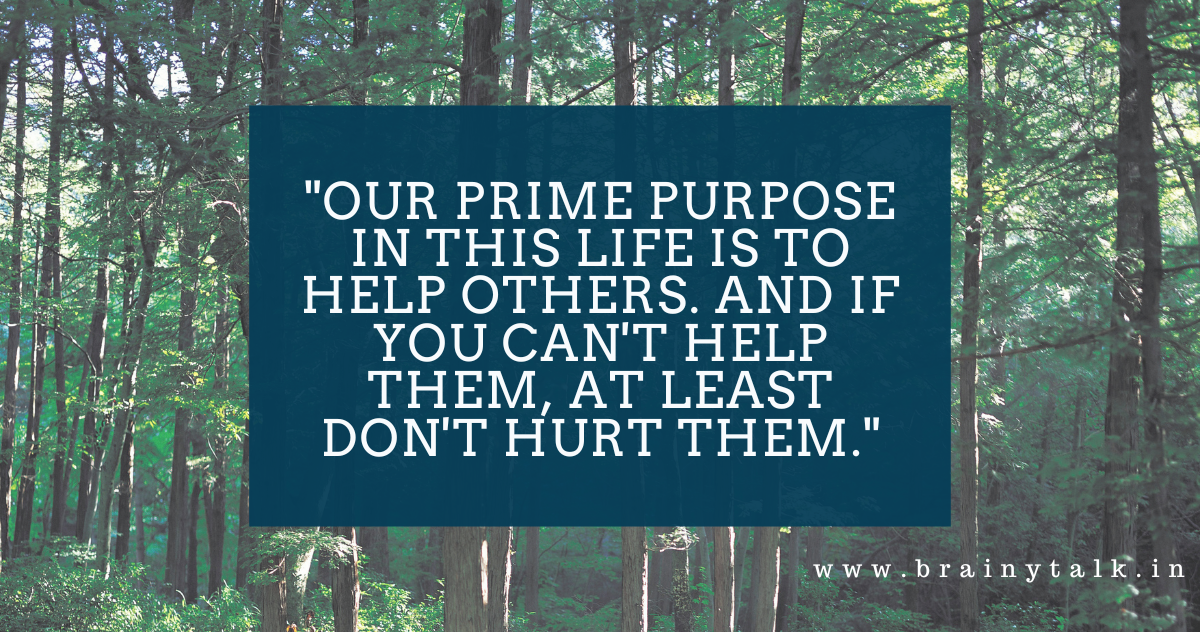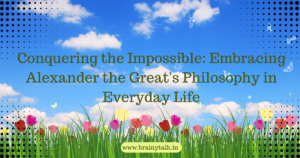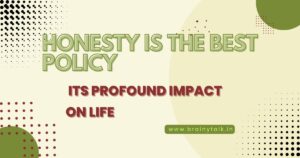The Dalai Lama, the spiritual leader of Tibetan Buddhism, is renowned for his wisdom and compassion. One of his most poignant Dalai Lama quotes on helping others is, “Our prime purpose in this life is to help others. And if you can’t help them, at least don’t hurt them.” In a world that often seems chaotic and self-centered, these words offer a profound yet simple guide to living a meaningful life. Let’s unpack the layers of this message and explore how we can integrate it into our daily lives.
The Prime Purpose: Helping Others
At the heart of the Dalai Lama’s quote is the idea that our primary goal is to serve others. This doesn’t necessarily mean grand gestures or heroic acts. It can be as simple as offering a listening ear, a helping hand, or a kind word.
Helping others isn’t just about making them feel good; it’s about recognizing our interconnectedness. When we assist someone, we acknowledge that their well-being is intertwined with our own. By contributing to the happiness and welfare of others, we ultimately create a more harmonious and joyful world for ourselves.
The Many Faces of Helping
Helping can take countless forms. It could be volunteering at a local shelter, donating to a charity, mentoring a young person, or simply being there for a needy friend. Even small acts of kindness, like holding a door open for someone or offering a smile to a stranger, can make a difference.
Helping is not always easy. It may require us to step outside of our comfort zones, to sacrifice our time and resources, or to confront difficult situations. However, the rewards of helping are immeasurable. When we extend a helping hand, we not only improve the lives of others, but we also enrich our own.
The Ripple Effect of Kindness
When we help others, we set in motion a ripple effect of kindness. The person we help may, in turn, help someone else, and so on. Our actions can have a far-reaching impact, creating a chain reaction of positivity that can transform communities and even the world.
The ripple effect of kindness is not just a feel-good concept. It’s a powerful force that can change the course of events. Studies have shown that helping others can reduce stress, boost happiness, and even improve physical health. When we act with compassion, we create a more positive and supportive environment for everyone.
When Helping Isn’t Possible: Do No Harm
The Dalai Lama acknowledges that there may be times when we are unable to help others. In such cases, he urges us to “at least don’t hurt them.” This may seem like a low bar, but it’s actually a profound statement.
In a world where conflict and negativity often seem to dominate, the simple act of refraining from harm can be a powerful force for good. By choosing not to engage in harmful behaviours, we create space for healing and growth. We allow others to flourish without fear or judgment.
Do No Harm: A Daily Practice
Practicing non-harm can take many forms. It could mean avoiding gossip, refraining from criticism, or simply being mindful of our words and actions. It could also involve standing up against injustice or speaking out against hatred.
Non-harm is not just about avoiding negative actions; it’s also about cultivating positive ones. By focusing on kindness, compassion, and empathy, we create a more peaceful and harmonious environment for ourselves and others.
The Interconnectedness of All Beings
The Dalai Lama’s quote reminds us that we are all interconnected. Our actions have consequences, not just for ourselves, but for others as well. When we choose to help, or at least not harm, we are acknowledging this interconnectedness and contributing to the well-being of the whole.
This interconnectedness is not just a spiritual concept; it’s a scientific fact. We are all part of a complex web of relationships, and our actions have a ripple effect that can extend far beyond our immediate circle. By recognizing this interconnectedness, we can begin to live more responsibly and compassionately.
A Path to a Meaningful Life
The Dalai Lama’s quote offers a simple yet profound path to a meaningful life. By prioritizing helping others, or at least doing no harm, we can create a more positive and fulfilling existence for ourselves and those around us.
Conclusion
In a world that often pulls us in different directions, the Dalai Lama’s words offer a compass. They remind us that our lives are not just about personal gain, but about contributing to the well-being of others. Whether through grand gestures or small acts of kindness, we can all make a difference. And even when we feel unable to help, we can still choose to do no harm. Let’s embrace this simple yet profound philosophy. Let’s strive to help others whenever we can, and when we can’t, let’s commit to not causing harm. In doing so, we not only create a better world for others, but we also cultivate a deeper sense of purpose and fulfilment within ourselves. As the Dalai Lama teaches us, our prime purpose in this life is to uplift one another. And even in the smallest of ways, each of us has the power to do just that.
Share this article on following social media platforms ......


